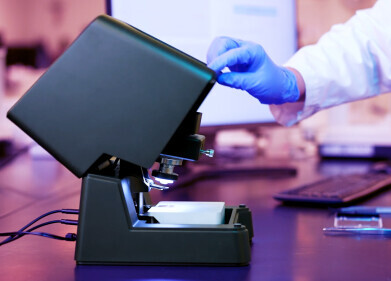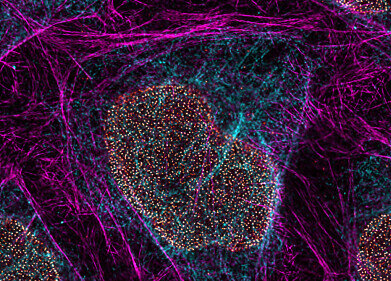-
 Breast cancer suffers could be given predicting blood tests
Breast cancer suffers could be given predicting blood tests
Microscopy & Microtechniques
Breast cancer suffers could be given predicting blood tests
Jun 27 2014
Researchers have found that a simple blood test could predict a woman's predisposition to cancer even if they don't have the gene, which has now been dubbed the 'Jolie gene' after the high profile actress underwent a double mastectomy after finding she had it.
The test is being developed by a team of scientists and is the first time a way to discover how likely a woman is to get breast cancer has been identified. This is possible even if the female has no genetic predisposition such as the Jolie gene.
Calling the findings "promising", scientists hope that, within five years, there will be a test that is able to predict a person's risk of developing breast or ovarian cancer in the next decade.
The team at University College London (UCL) found that women who developed hereditary breast cancer, which is caused by a BRCA1 mutation, had the same molecular changes in their blood as women who had no genetic predisposition. These alterations are identifiable years before a diagnosis is made and could help protect the 12,000 women in the UK who die from breast cancer every year.
Almost 50,000 British women are diagnosed with breast cancer annually, with around ten per cent of these being caused by BRCA1 and BRCA2 gene variants inherited from parents. However, the remaining 90 per cent of patients don't have an answer as to what caused the disease.
This has meant that, until now, there has been no reliable way to determine how likely a woman is to develop a non-inherited form of breast cancer. The scientists at UCL found the molecular change is part of a process that affects whether genes are turned on or off and can be triggered by lifestyle choices. These include common habits like alcohol and smoking, so women who knew they were at high risk could have the time to change their lifestyle to reduce the danger.
These findings, published in the online journal Genome Medicine, indicate that the changes could be detected years before symptoms appear, according to the experts.
Digital Edition
Lab Asia 31.2 April 2024
April 2024
In This Edition Chromatography Articles - Approaches to troubleshooting an SPE method for the analysis of oligonucleotides (pt i) - High-precision liquid flow processes demand full fluidic c...
View all digital editions
Events
Apr 25 2024 Istanbul, Turkey
Apr 28 2024 Montreal, Quebec, Canada
May 05 2024 Seville, Spain
InformEx Zone at CPhl North America
May 07 2024 Pennsylvania, PA, USA
May 14 2024 Oklahoma City, OK, USA

















